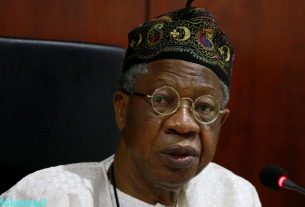As defections to the ruling All Progressives Congress, APC, swell, the party’s National Chairman, Abdullahi Ganduje has suggested a one-party state for Nigeria.
He declared his party’s readiness to welcome a one-party state if all parties in the country were to dissolve into his party.
According to him, “no one would fight against a one party Nigeria if the country adopted the system.”
He made the suggestion as three opposition Peoples Democratic Party (PDP) senators warm up to move over o his party.
To him, a one-party structure would enhance effective democratic governance better that the multi-party system in practice, which he said creates unmanageable obstacles.
A BBC report quoted him as citing the example of China, saying, “If you look at China today, they operate a single-party system, yet China is now a global leader in driving the development of its people”.
He announced that the PDP senators from Kebbi State had told the President of their decision to resign from their current party and rejoin the APC.
Ganduje added that they are expected to formally announce their defection in the Senate next week, in accordance with constitutional requirements.
The senators—Adamu Aliero, Yahaya Abubakar Abdullahi, and Garba Maidoki—were seen meeting with President Tinubu shortly before the announcement.
Their move follows recent high-profile defections, including that of former Delta State Governor Ifeanyi Okowa, who had contested the 2023 presidential election as the PDP vice-presidential candidate.
Reacting to the latest defections, APC National Secretary Malam Bala Ibrahim told the BBC that the developments indicate a change in how the public views them.
He stated that those who previously claimed the APC was facing internal problems are now feeling awkward, as evidenced by some of them rejoining the party.
He further explained that this trend simply demonstrates that the APC’s policies are in line with democratic principles and represent the impartiality and organization necessary for a democracy.
Several politicians who left opposition parties have pointed to internal disagreements and instability within their former parties as reasons for their decisions. However, Umar Ibrahim Tsauri, a member of the PDP Board of Trustees, attributed the defections to a lack of ideological commitment.
According to a BBC report, he suggested that the primary motivation for most politicians changing parties at this time is likely a result of their inability to achieve their goals within their existing party or a perception that being in the opposition offers no benefits, leading them to rejoin the party in power.





